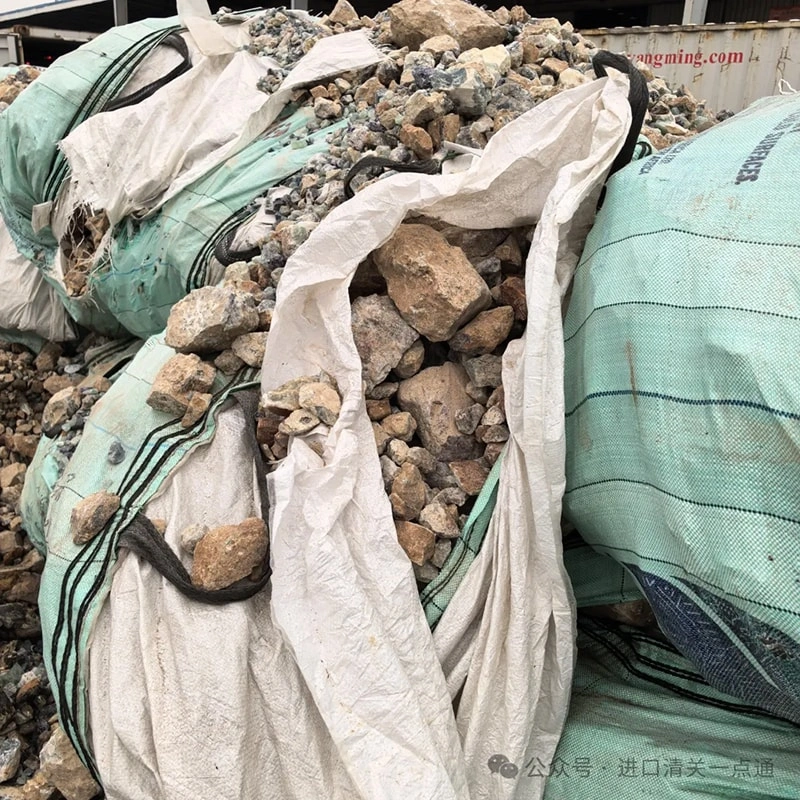Fluorite Import Process
Introduction: Fluorite, also known as fluorite, is a mineral widely distributed in nature, and its main component is calcium fluoride (CaF₂). Due to its unique physical and chemical properties, fluorite plays an important role in metallurgy, chemical industry, building materials, ceramics, glass and aerospace. In recent years, with the growth of domestic demand, China's imports of fluorspar rose significantly. However, fluorite import involves complicated customs declaration process and strict regulatory requirements.

Fluorspar import required materials
1. Certificate of origin: prove the origin of fluorspar.
2.Test report: detailing the composition and characteristics of fluorspar, such as calcium fluoride content and arsenic content.
3.Contract, invoice, packing list, bill of lading: necessary documents in import trade.
Product information: including weight, volume, packaging and other details.
Precautions for Fluorite Import
1. Ingredient testing and monitoring report
Detailed ingredient testing is completed in the country where the goods are exported and a standardized monitoring report is generated, which is the basis for customs declaration and customs clearance.
2. Complete documents and documents
Ensure that the submitted documents (e.g. contracts, invoices, test reports, etc.) are complete and accurate, so as to avoid the goods being detained or fined due to the lack of documents.
3. Accurate categorization of tax code
Accurate categorization of tax code according to the composition of fluorite, to avoid customs penalty due to wrong tax code.
4. Pay attention to the policy development
Fluorite import policy and customs code may be adjusted at any time, importers need to understand the latest policy to ensure compliance.
5. Transportation and Warehousing Arrangements
Ensure the safety of transportation, and plan the pick-up and warehousing arrangements in advance to avoid additional costs due to delayed goods.








